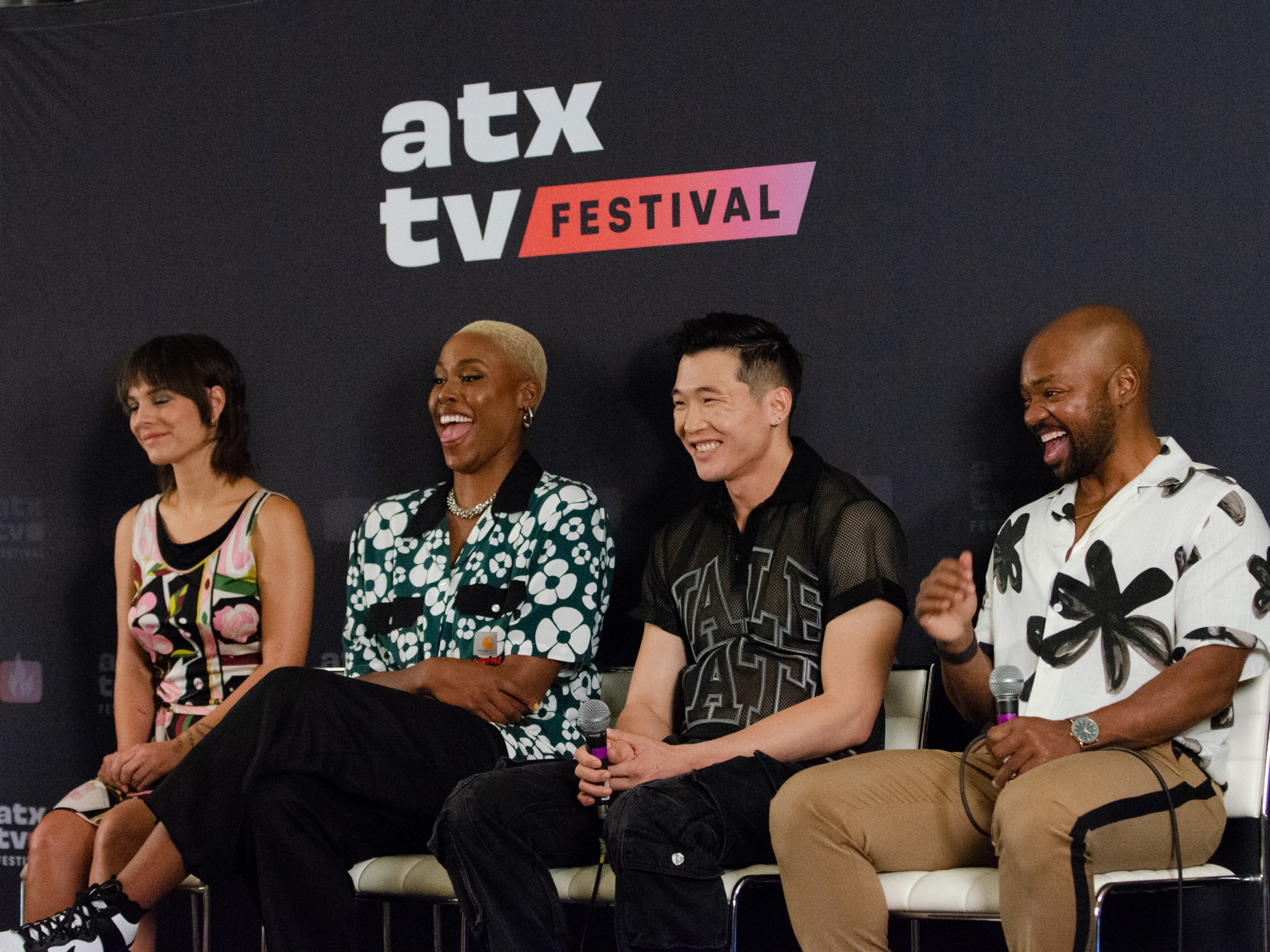
- Television
ATX TV Festival 2023: Queer Stories We Want to See
Just in time to kick off Pride Month, this year’s ATX TV Festival in its 12th year featured one of the most thought-provoking discussions over the weekend-long events, tackling queer representation on the small screen and the dire need to expand it beyond the commonly repeated narratives.
Titled “Queer Stories We Want to See,” the panel welcomed four actors who shared their own experiences and ideas of what Hollywood has to do to better serve and showcase LGBTQIA+ characters and stories, emphasizing that while some work has been done, a lot more still has to change and evolve.
“I think because there’s such a lack of specific representation, queer people especially are so trained to find their own experiences in the experiences of others. I think that’s why gay men love playing women so much. A lot of the representations or things that made me feel seen growing up, even now as an adult, are oftentimes not even queer movies. I’ll watch Death Becomes Her and say ‘Yeah, that’s it!’ It’s so weird because, at least for people of our generation, you’re so not used to seeing yourself and you just have to find it in little grains of Goldie Hawn performances,” said actor Joel Kim Booster, the South Korean-born American actor who appeared on such TV shows as The Other Two, Shrill and Loot, and last year starred in the gay romantic comedy Fire Island which he also wrote.
The actor and stand-up comedian further explained why having a specific go-to reference for a show with a queer storyline or characters at any given time that receives all the attention is a problem in itself.
“That actually causes a lot of resentment in our community towards the one show or movie that we get. Because that one show or movie is then asked to represent a huge spectrum of experiences and no one show or movie is going to do that. Queer audiences are being told ‘This is for you,’ and it’s not for all of us, it shouldn’t be for all of us and it’s not going to be for all of us, and you get frustrated.”
Brian Michael Smith, who has starred in Ryan Murphy‘s procedural drama series 9-1-1: Lone Star for four seasons now, making him the first out Black trans man cast as a series regular on broadcast television, echoed the same sentiment, saying, “There’s nuances within our community, there’s a variety of queer representations, and if you allow queer content creators to create their own thing and tell their own stories and not say ‘this is going to be the one thing,’ that would give the opportunity and then we would be in a better place to see all of the colors of the rainbow.”
Smith, who for the past two years has been on the Human Rights Campaign’s Board of Directors, the largest LGBTQ+ activist organization in the country, also addressed the commercial aspect of entertainment and said, “The queer audience in and of itself is growing and there are trillions of dollars within this industry. But by trying to use the same formula, they exclude more voices that are actually going to bring them the results they’re desperately seeking. It’s so confusing and frustrating.”
As the conversation moved to the crucial part of the decision-making and final say in putting out a creative effort, Australian actress Caitlin Stasey, who stars on Prime Video’s comedy series Class of ’07, said, “As an actor, your agency is very limited. It’s the coolest job and I love it so much, but you’re the last people put into a project, the first ones to come out, but it lives years after you’re done with it. So, to have any kind of impact, it is really important to become a writer or director or producer. All the things you don’t necessarily see.”
In what was the most applauded moment during the conversation, actor Jerrie Johnson, who stars as Tye on Prime Video’s comedy series Harlem, simply stated: “I don’t care to make anybody comfortable.”
Johnson, who identifies as queer and non-binary, went on to say, “Being Black, being queer, being a woman, growing up poor, the social economic disparity, I have been so uncomfortable in my life – you think I care to make people comfortable? And actually, I think people are extremely comfortable around me because of that. I’m not going out of my way to make people comfortable. As soon as I’m put in the position where I am the voice of queer black women, then they rob me of my own individuality. To maintain my autonomy, I can only speak from Jerrie’s perspective. And that has to be respected. And if I do happen to have a ripple effect in the queer community, then that’s amazing. But I’m not setting myself up to be the voice of a bunch of people who are so nuanced. And I’ve never heard anybody ask a white man – are you the voice of all white men?”
Smith concluded the panel by saying, “The purpose of art is to provoke thought. To get you to see things, to question ideas, make up an idea, getting to see what is your voice and how you feel about something. And if it’s something that’s not comfortable, wait – how do you feel about it? Talk about it, let’s have a dialogue. That’s how we connect as people with the world around us. So, to try and make things more palatable and not talk about it, that’s the antithesis of what we do in the first place.”

